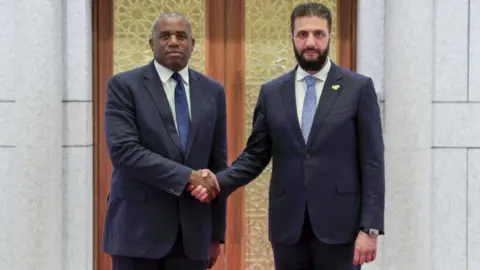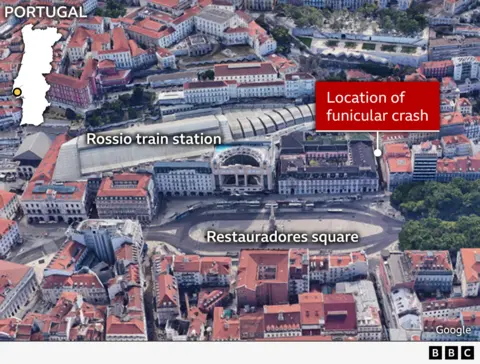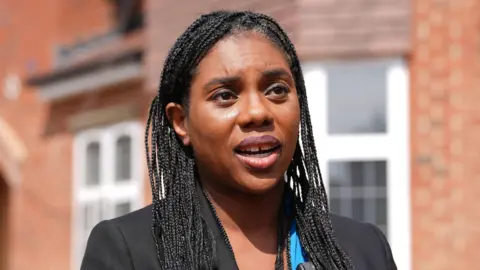David Lammy Makes Historic Visit to Syria, Pledging UK Support Amidst Transition
In a landmark diplomatic move, UK Foreign Secretary David Lammy has become the first British minister to set foot in Syria since the onset of the nation’s devastating civil war 14 years ago. This historic visit underscores a significant shift in international engagement with the war-torn country, as Lammy met with Syria’s interim president, Ahmad al-Sharaa. The meeting occurred eight months after the collapse of the Bashar al-Assad regime and amid the new Islamic-led government’s efforts to consolidate its authority.
Lammy’s visit signals a new chapter in UK-Syria relations, marked by a substantial commitment of aid. The UK government has announced an additional £94.5 million in support, earmarked for crucial humanitarian relief and the longer-term recovery efforts within Syria and the surrounding region, which has been heavily impacted by the refugee crisis. This financial injection aims to address the immediate needs of the Syrian people while laying the groundwork for future stability.

Speaking to the BBC, Lammy emphasized the core objectives of his engagement: fostering inclusivity, transparency, and accountability within the new Syrian government. “I’m here to speak to this new government, to urge them to continue to be inclusive, to ensure that there’s transparency and accountability in the way that they govern,” Lammy stated. He further conveyed a message of solidarity, adding, “But [also] to stand by the Syrian people and Syria as it makes this peaceful transition over the coming months.”
The geopolitical landscape of Syria has undergone a dramatic transformation. In December, rebel forces, led by Hayat Tahrir al-Sham—an organization designated as terrorist by the UK, UN, and US—took control of Damascus, ending the 54-year rule of the Assad family. This has led Western nations to re-evaluate their diplomatic approaches, with the US notably ending sanctions against Syria at the close of June. The White House indicated its intention to monitor Syria’s adherence to critical policies, including the crackdown on foreign terrorists and the prohibition of Palestinian militant groups.
This shift in international policy is also reflected in European capitals. Al-Sharaa previously met with French President Emmanuel Macron in May, and other foreign dignitaries, including Ukraine’s foreign minister, have also visited Syria. Many members of the current Syrian administration, including President al-Sharaa himself, have past affiliations with Hayat Tahrir al-Sham. When questioned about the UK’s stance on engaging with a group previously listed as a terror organization, Lammy acknowledged Syria’s tumultuous history of conflict and terrorism. However, he stressed the UK’s forward-looking approach, prioritizing engagement with the current government.
Syria is currently navigating a fragile political environment, grappling with the aftermath of prolonged conflict and the complexities of its new leadership. The nation has witnessed a series of violent incidents targeting minority communities in recent months, including attacks on the Alawite and Druze populations, and a particularly brutal assault on a church in Damascus. These events have amplified international concerns regarding the new government’s capacity to protect its diverse populations and ensure widespread safety and stability. Daily reports of killings and kidnappings continue to highlight the precarious security situation.
Lammy articulated the UK’s role in this critical juncture: “It’s important that the UK lean in to ensure that the balance is tipped in the right direction, a balance towards accountability, transparency, inclusivity for all of the communities that make up this country, a prosperous one and a peaceful one.” The sentiment among many Syrians, however, is one of apprehension, with fears that the country might be sliding back towards authoritarianism. Restrictions on personal freedoms, the marginalization of women in governance, and the increasing enforcement of religious practices over civic law are sources of growing concern.
The formation of the new government has also raised questions about its representativeness and inclusivity. With only one female minister appointed and President al-Sharaa dominating other key appointments without public consultation or elections, there are underlying anxieties. Reports suggest that many government positions have been filled based on personal connections rather than merit, and a significant number of appointees reportedly adhere to a radical Islamic agenda, which they are actively implementing.
The UK remains committed to supporting Syria’s path towards “peace, prosperity, stability for the people and an inclusive country,” with humanitarian aid serving as a key lever for influencing this direction. Lammy affirmed that the UK would closely monitor the situation, ensuring the new government governs inclusively. Furthermore, the UK is actively collaborating with the Organisation for the Prohibition of Chemical Weapons (OPCW) to dismantle Syria’s chemical weapons arsenal, a legacy of the Assad era. This financial year, an additional £2 million has been allocated to the OPCW, supplementing the approximately £837,000 provided since Assad’s downfall.
Looking ahead, Syria faces considerable internal and regional challenges. Israel continues to occupy parts of Syrian territory and has conducted numerous airstrikes, raising concerns about regional stability. Lammy urged the Israeli government to reconsider its actions, warning against undermining potential progress in the “new Syria.” Additionally, the plight of hundreds of foreign fighters and their families detained in northwest Syria, including numerous individuals with UK ties, remains a pressing issue. While Lammy discussed the matter of these camps, counterterrorism, and irregular migration with President al-Sharaa, a definitive answer regarding the repatriation of UK nationals was not provided.
The security situation in Syria remains precarious, with ongoing threats from the Islamic State group and other radical jihadist factions integrated into the current government structure. International support is vital for the recovery of the war-ravaged nation, but it also presents an opportunity to encourage the Syrian government towards greater inclusivity and the establishment of a diverse and open society.



Post Comment